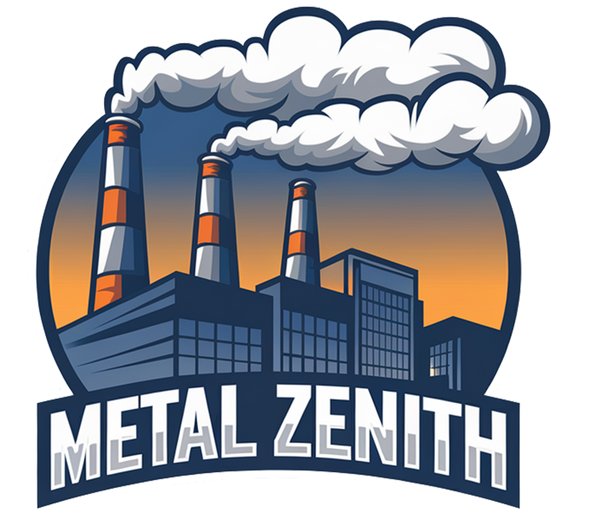UNS N06625: Guía experta sobre las normas y la certificación de Inconel 625 (2025)
Compartir
Table Of Content
Table Of Content
Guía del experto sobre UNS N06625: Explicación de las normas y la certificación de Inconel 625
¿Qué es UNS N06625?
UNS N06625 es el nombre oficial del Sistema de Numeración Unificado (UNS) para la aleación de níquel-cromo-molibdeno de alto rendimiento, conocida como Inconel 625. Destaca por su alta resistencia a la corrosión, alta resistencia mecánica y rendimiento confiable tanto en temperaturas muy frías como muy calientes. Esta guía explica el sistema de numeración, describe los estándares importantes que controlan su calidad y muestra el significado real de la certificación de materiales para ingenieros y compradores.
Entendiendo el UNS
El Sistema Unificado de Numeración (SNU) es el principal método para etiquetar aleaciones en Norteamérica, administrado conjuntamente por ASTM International y SAE International. Su propósito es simple, pero vital para la precisión de la industria.
- Elimina la confusión causada por múltiples nombres comerciales y designaciones de marcas para la misma aleación.
- Proporciona una única referencia cruzada que conecta varias normas internacionales y especificaciones de materiales.
- Crea una forma organizada de identificar metales donde la letra del prefijo muestra la familia del metal.
La "N" en N06625 muestra que es una aleación de níquel, lo que indica instantáneamente cuál es su elemento principal.
Descodificación de UNS N06625
Las normas específicas del número UNS para las especificaciones del Inconel 625 garantizan el rendimiento esperado del material. Estas normas definen la composición química exacta y las propiedades de resistencia.
Esta superaleación versátil, Inconel 625 , rinde al máximo en los entornos más exigentes, desde aviones hasta plantas químicas. Sus cualidades especiales se deben directamente a su mezcla de metales cuidadosamente controlada.

Tabla 1: Composición química (ASTM B443/B446)
| Elemento | Peso % |
|---|---|
| Níquel (Ni) | 58.0 minutos |
| Cromo (Cr) | 20.0 - 23.0 |
| Molibdeno (Mo) | 8.0 - 10.0 |
| Niobio (Nb) + Tantalio (Ta) | 3.15 - 4.15 |
| Hierro (Fe) | 5.0 máximo |
| Carbono (C) | 0,10 máximo |
Tabla 2: Propiedades mecánicas típicas (recocido)
| Propiedad | Imperial (psi) | Métrico (MPa) |
|---|---|---|
| Resistencia a la tracción (máxima) | 120.000 - 140.000 | 827 - 965 |
| Límite elástico (compensación del 0,2 %) | 60.000 - 80.000 | 414 - 552 |
| Alargamiento en 2" | 30 - 50% | 30 - 50% |
Los datos provienen de fuentes confiables de la industria, como la hoja de datos de la aleación HAYNES® 625 .
Estándares de calidad de Cornerstone
Para que la norma UNS N06625 cumpla con los requisitos, debe fabricarse, probarse y entregarse de acuerdo con normas específicas reconocidas mundialmente. ASTM International proporciona las normas más comunes para diversas formas de producto.
Obtener material que cumpla con el estándar adecuado es imprescindible para garantizar que funcione de forma segura en usos críticos.
Tabla: Normas ASTM clave para Inconel 625 (UNS N06625)
| Estándar | Formulario del producto | Breve descripción |
|---|---|---|
| ASTM B443 | Placa, lámina y tira | Cubre dimensiones, tolerancias y propiedades de productos laminados planos. |
| ASTM B444 | Tubos y tuberías sin costura | Especifica los requisitos para productos tubulares sin costura para servicio corrosivo. |
| ASTM B446 | Varilla, barra y alambre | Define los estándares para barras y alambres sólidos redondos, planos o perfilados. |
| ASTM B366 | Guarniciones | Cubre accesorios de soldadura a tope forjados fabricados en fábrica. |
| ASTM B564 | Forjados | Especifica requisitos para componentes forjados como bridas y formas personalizadas. |
Para industrias especiales, a menudo se necesitan otras normas como AMS (Especificaciones de materiales aeroespaciales) para satisfacer las estrictas demandas de los usos aeronáuticos y espaciales.
Qué significa "Certificado"
La certificación es mucho más que una simple etiqueta. Es una garantía escrita de que el material que recibe cumple con todos los requisitos de la norma especificada.
Esta documentación proporciona la prueba necesaria para el control de calidad y el seguimiento.
El material certificado garantiza:
- Análisis químico: Comprueba que la composición del metal se encuentra dentro de los rangos estrechos y aceptables. La microestructura y las propiedades mecánicas finales dependen directamente de esta química exacta.
- Prueba mecánica: verificación de que el material proporciona la resistencia y flexibilidad requeridas después de un tratamiento térmico correcto (por ejemplo, recocido en solución).
- Trazabilidad: Una ruta documentada desde la fundición original del horno hasta el producto final. Esto se refleja en un Informe de Ensayo de Materiales (MTR), a menudo denominado Certificado 3.1 según la norma EN 10204.
- Resistencia a la corrosión: Para ciertos usos, los documentos pueden confirmar que se pasaron pruebas de corrosión específicas, a veces medidas por su alto Número Equivalente de Resistencia a las Picaduras (PREN) .
Cómo verificar la certificación
Al evaluar a un proveedor de Inconel 625, nuestros ingenieros de calidad utilizan esta lista para examinar el Informe de Prueba de Materiales (MTR). Esto evita aceptar material falso o no conforme.

- Verifique el estándar: ¿El MTR indica claramente el estándar ASTM correcto (por ejemplo, ASTM B446 para barras)?
- Verificar el número UNS: ¿El informe identifica el material como UNS N06625?
- Confirmar la trazabilidad: ¿Existe un número de lote o de colada único que conecte el informe con el material físico?
- Revisión del análisis químico: Compare los porcentajes de Ni, Cr, Mo y Nb indicados con los rangos requeridos por la norma. Todos los elementos deben cumplir con las especificaciones.
- Examinar las propiedades mecánicas: ¿Los valores de resistencia y flexibilidad informados cumplen o superan los requisitos mínimos de la norma?
- Nota sobre el tratamiento térmico: el informe debe indicar la condición final del tratamiento térmico, normalmente "Recocido" o "Recocido en solución".
- Confirmar el fabricante: El MTR debe identificar la fábrica original. Un proveedor confiable siempre proporcionará el MTR de la fábrica original.
